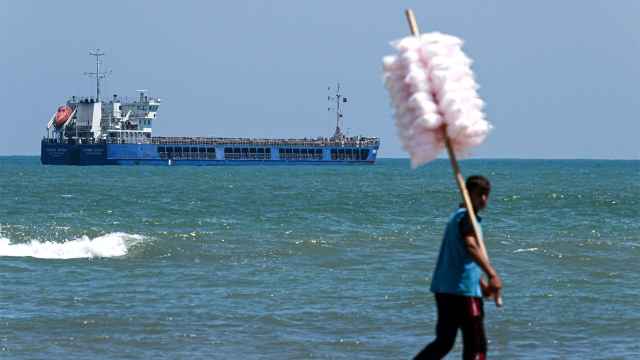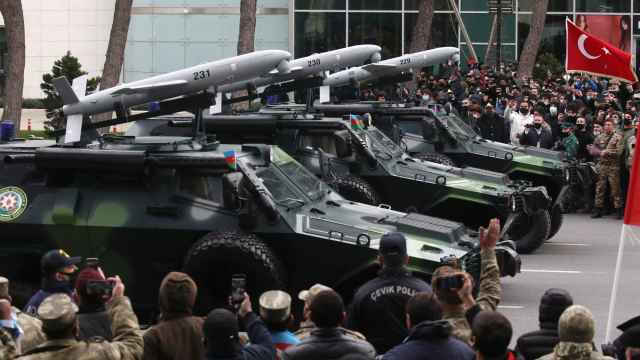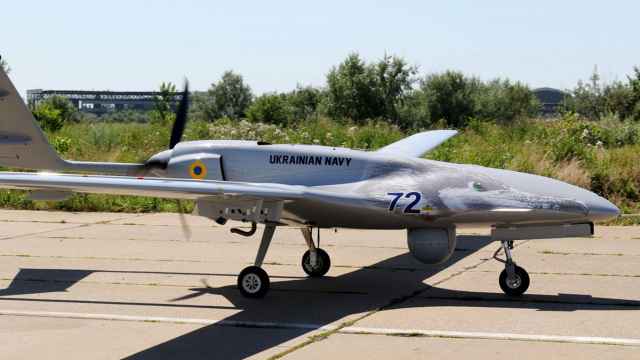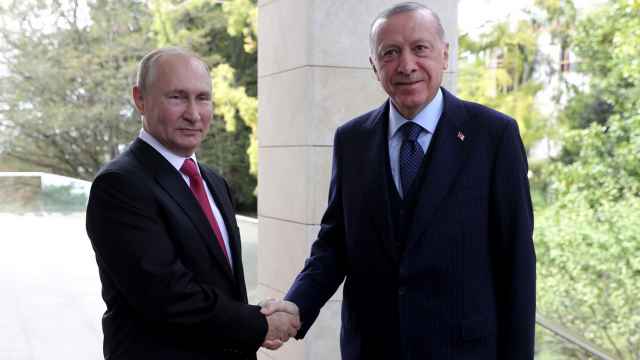The dispute between Turkey and Greece over energy-rich waters in the Mediterranean should be settled on the "basis of international law", Russian Foreign Minister Sergei Lavrov said Monday.
The discovery of huge natural gas reserves in the eastern Mediterranean has exacerbated tensions between Ankara and Athens following Turkish exploration operations in waters claimed by Greece and Cyprus.
Their differences "must be resolved on the basis of international law, the international convention on the law of the sea... that is the key to normalize relations", Lavrov said after talks with his Greek counterpart Nikos Dendias.
Athens often cites the law of the sea to support its case against Ankara which has not signed the 1982 convention.
Lavrov told Greek press agency ANA on Monday that article three of the convention allows states to expand national waters to 12 nautical miles.
Turkey has warned that such a move by Greece would lead to war. Some Greek islands are under 12 nautical miles from the Turkish coast and Turkish vessels could be prevented from entering certain areas.
Turkey has extended once again a research ship's search for gas in the contested waters, with Greece warning at the weekend that made a "constructive dialogue" even more unlikely.
The ship made a first foray into the waters in August, sparking a storm of regional controversy, and then returned in mid-October.
"Turkey is committed to the escalation of tension," Nikos Dendias said, adding that Greece was "ready to uphold her sovereign rights".
Dialogue between the two neighbors "could not take place under pressure", he added, accusing Turkey of having a "neo-Ottoman vision" and playing a "destabilizing role" in the region.
The tensions have seen Turkey, Greece, Cyprus, France and Italy stage military exercises in the eastern Mediterranean, heightening fears the standoff could accidentally tip into conflict.
Lavrov was due to meet Greek Prime Minister Kyriakos Mitsotakis later on Monday.
A Message from The Moscow Times:
Dear readers,
We are facing unprecedented challenges. Russia's Prosecutor General's Office has designated The Moscow Times as an "undesirable" organization, criminalizing our work and putting our staff at risk of prosecution. This follows our earlier unjust labeling as a "foreign agent."
These actions are direct attempts to silence independent journalism in Russia. The authorities claim our work "discredits the decisions of the Russian leadership." We see things differently: we strive to provide accurate, unbiased reporting on Russia.
We, the journalists of The Moscow Times, refuse to be silenced. But to continue our work, we need your help.
Your support, no matter how small, makes a world of difference. If you can, please support us monthly starting from just $2. It's quick to set up, and every contribution makes a significant impact.
By supporting The Moscow Times, you're defending open, independent journalism in the face of repression. Thank you for standing with us.
Remind me later.






